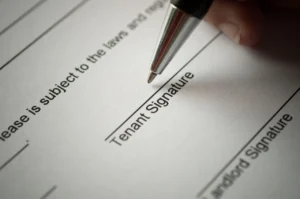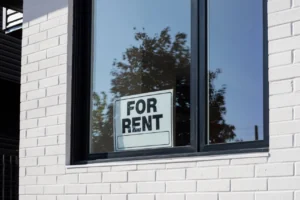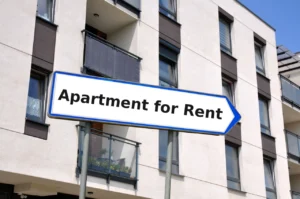How to Invest in Real Estate: Guide for Beginners
 You have probably heard at some point that “real estate is a great investment” or “real estate is the best way to earn additional income.” While it’s great to know that real estate is a good investment, it’s even better to know how to actually invest in it.
You have probably heard at some point that “real estate is a great investment” or “real estate is the best way to earn additional income.” While it’s great to know that real estate is a good investment, it’s even better to know how to actually invest in it.
Where do you start? How much money do you need for an investment property? These are the types of questions that need to be answered before you enter the world of real estate investing.
Keep reading to learn more about how to invest in real estate, including the type of properties you can invest in, the best time to invest, how to set goals and more.
How do you invest in real estate?
It might seem like real estate investing is a matter of acquiring a property, fixing it up (if necessary), charging rent and collecting checks. However, to get started, there’s actually more to it than that.
First, you need to know what type of real estate you want to invest in. You could buy a single-family house and rent it out until you decide to sell it. Or you could skip the rental part altogether and buy that same single-family house, make the necessary repairs and sell it at a profit, also known as house flipping. If you think you can handle more than one tenant, you could invest in an apartment building and collect multiple rent checks every month.
These are just a few of the real estate investment options available to you. So, the first step in how to invest in real estate is to decide where to put your money.
Real estate investing is NOT passive income!
You might have also heard that real estate investing is a great way to make “passive income.” Remove, “passive” from that statement and it is true — it’s a great way to make an income, but there is nothing passive about it.
Passive by definition is, “not active.” You’ll be plenty active as a real estate investor. Between looking for properties, acquiring them, marketing, property management, looking for tenants, collecting rent and scheduling building maintenance and repairs, there’s always something to do!
You could hire property management companies to handle a lot of these duties, but remember even then you’ll still have an active role as the property owner.
Again, real estate is a great investment vehicle, but you need to know it’s not just buying something and waiting for checks to come in.
What are your investment goals?
Now that you know what type(s) of real estate that you want to invest in, it’s time to set up some targets. Knowing what you’re aiming for will make it easier for you to set rent prices, create a spending budget and complete all the other tasks that follow.
The more specific you can make your goals, the better. Instead of saying, “I want to make a lot of money,” decide on an actual dollar amount. What you consider to be a lot of money might seem miniscule to someone else and vice versa.
Put this type of specificity on every real estate investment goal you want to set and ask yourself:
- How many properties or square feet do you want to own?
- How much do you want to increase profits year over year?
- What type of properties do you want to own?
- Where are they located?

Meanwhile, it’s great to “think big,” but when you’re first getting started, it’s OK to think realistically instead. There is a lot to do when beginning to invest in real estate; you don’t have to build an empire right away. Set reasonable goals that grow with you as you become a more experienced real estate investor.
If you’re having trouble determining your goals, remember to make them SMART:
- Specific
- Measurable
- Attainable
- Realistic
- Time-related
For example, let’s say you set a goal of, “I want to flip two houses and sell them in the next two years.” Is that goal SMART? Let’s see:
|
Specific |
Yes, because you said how many houses you wanted to buy and flip. |
|
Measurable |
Yes, because you can track your progress in terms of where you are in purchasing and selling the properties. |
|
Attainable |
Maybe. This depends on if you have the capital necessary to acquire the two houses you want to eventually flip. |
|
Realistic |
Again, maybe. Even if you have the money to buy those two homes, is two years enough time to make the necessary repairs and sell them at your asking price? |
|
Time-Related |
Yes, because you gave yourself a hard deadline. |
It’s good to have goals regardless of the business venture, because you’ll remain focused given that there’s a specific target you need to hit. Focus is especially important when you’re doing something for the first time like real estate investing.
4 types of real estate investments to consider
The number of available options is one of the best things about real estate investing. You could stick with one type of investment or start to diversify your real estate property portfolio as you become more experienced and successful.
You will find that there are a lot of different avenues to take with real estate investing as you do your search, but here are five to keep in mind:
Rental properties
Rental properties can be a great real estate investment if you’re comfortable dealing with tenants and are good at renovations. If you’re not a do-it-yourselfer, you can always hire repair companies to fix damage and perform routine maintenance. Rental properties also provide an opportunity to generate monthly income and they can become more valuable over time. You just have to keep the real estate property occupied as often as possible because every month it’s vacant it is losing revenue for you.

House flipping
As mentioned before, flipping houses entails finding a residential property, purchasing it, making repairs and selling it for a profit. Of course, the process isn’t always that simple.
You need to be skilled in several areas to make house flipping work. These areas may include evaluating properties, advertising/marketing and renovation. You also need the funds to purchase the investment property and take care of all of the necessary repairs. If you can sell the house quickly however, you can enjoy your returns much faster than if you rented it out for an extended period.
Real Estate Investment Trusts (REITs)
A real estate investment trust may be a good option if you want to be a real estate investor, but don’t have a lot of money to spend at the moment. Instead of purchasing a house or apartment building, you’d buy shares of stock for publicly traded companies that buy properties and lease the space for apartment buildings. You see your return on investment when the REIT pays out its dividends. REITS are a less hands-on way of investing in real estate while still giving you a seat at the table.
Real Estate Investment Groups (REIGs)
While similar to REITs in that they offer a more “hands off” approach to real estate investing, real estate investment groups are companies that invest primarily in rental properties. REIGs acquire apartment buildings and real estate investors can buy them through the company. As an individual investor, you may own a couple of units, but the company running the REIG manages all aspects of the property. In return, it would get a percentage of your units’ monthly rent.
Again, there are a number of real estate investment options at your disposal. Be sure to look into these four as well as the many others that are out there like crowdfunding platforms, raw land, your own home, etc.
When should you start investing in real estate?
There is a saying often applied to investing: “The best time to plant a tree was 20 years ago. The second-best time is now.”
It’s easy to see why — the sooner you make an investment, the longer it has to yield returns. The logic works for real estate investing; if you started two decades ago, you could potentially have had a lot of rent checks coming your way. It’s OK if you didn’t start then, however. You can always start now. There are just a couple of questions you may want to ask first:
Are you ready to invest in real estate?
Real estate investing is a serious financial commitment. Make sure you have the necessary funds before you jump into this field. You’ll need enough money for the down payment of course, but you’ll also have to pay for closing costs, property inspection as well as any repairs that come up. Don’t forget to factor in potential losses if you have any vacancies in your property. Advertising your property and screening tenants are also common expenses for property owners.
Time is another factor to consider if you want to be a real estate investor. Do you have enough time to manage a property? Finding and interviewing potential tenants, running background checks, making or scheduling repairs, tracking down unpaid rent are just a few of the tasks that will be on your real estate investor “to do” list. Putting them “off until later” could cost you money and tenants.
Is the real estate market in a good place to invest?
“Buy low, sell high” is a common refrain for investing, but it’s not always applicable to real estate. That’s because there’s no certain time when the real estate market is down. If you sit back and wait for homes or properties to be at their lowest prices, who knows when you’ll be able to invest?
In fact, you might have more luck, or at the very least less competition, when the real estate market is at its peak. The higher prices are, the less potential buyers there will be to fight over properties with.
While it’s wise to monitor the real estate market prior to investing, don’t let how it’s going at the moment push you to take an unnecessarily big swing or sit on the sidelines. There’s not really a perfect time to invest in real estate and waiting for one will only give your “tree” less time to grow. Plus, if you’re in this for the long haul, there may be less reason to worry about when you invest because you’ll likely see it pay off over time.
So rather than study the market solely, also look at where a property is located, what tenants are paying for rent now, potential ROI and cash flow when deciding when to invest in real estate.
Why invest in real estate?
You won’t find “passive income” as a reason to invest in real estate here, but there are plenty of other reasons to do so, including:
Cash flow
Real estate investing is a great opportunity to generate cash flow — money coming in (and going out of) to your rental property. Your cash flow may not be as high when you first invest because of your upfront costs, but that should change as you continue to pay off your mortgage and gain more equity.
Tax breaks
Yes, it takes money to invest in real estate, but you could be in for savings in the form of tax breaks and deductions as an investor. A number of property management and ownership costs are tax deductible.
Portfolio diversification
We never know what could happen with the stock market on a given day. And it can be nerve wracking during economic downturns. Real estate investment can help shield you from such turmoil; when stocks and bonds are dropping, your rental properties’ value could offset those other market losses.
Steady income
As long as you own your rental properties, there will be rent checks coming in to you. Any income you generate from your real estate investment could help supplement your salary, bolster your portfolio or eventually serve as your day-to-day way to make a living.
Great potential ROI
No investment is without its risks. Real estate investments usually appreciate, however. If yours does, your investment will be worth more than you initially paid for it. What’s also great is whether your rental property appreciates or not is partly in your control. You can renovate or make additions to help increase your property’s value.
Final takeaway
There’s a lot that goes into real estate investing, but it’s not impossible. If you can save up the capital for the down payment (or investment for a REIT or REIG), properly evaluate a property’s cash flow and ROI potential and set SMART goals, you too can be a real estate investor.
What resources does AAOA offer?
More than 120,000 landlords across the U.S. have been trusting the American Apartment Owners Association (AAOA) since 2004, because we make rental property management easy.
Whether you own a single rental unit or manage numerous rental units, we offer a variety of services including extensive tenant screening, credit checks, landlord forms, rental applications and relevant real estate updates.
AAOA members can also access our vast library of live and on-demand webinars, where you can learn from rental industry experts so you can meet today’s industry’s demands.
Disclaimer: Nothing contained on this website constitutes tax, legal, insurance or investment advice, nor does it constitute a solicitation or an offer to buy or sell any security or other financial instrument. AAOA recommends you consult with a financial advisor, tax specialist, attorney or other specialist who is able to properly advise you.













 Accessibility
Accessibility